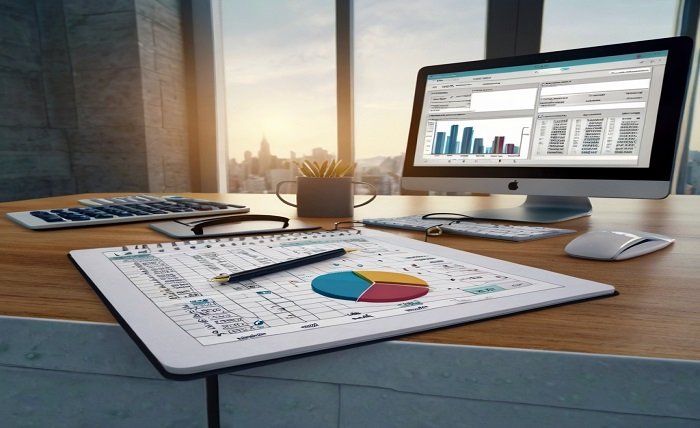The introduction of cutting-edge technology has caused a significant upheaval in the accounting industry. This transformation is introducing new tools and capabilities that improve efficiency, accuracy, and insight, as well as changing the way firms manage their financial processes. In this blog post, we will examine several aspects of accounting technology and its significant influence on the sector.
The Development of Accounting Technology

Accounting technology has advanced significantly from the days of manual entry and ledgers. Accounting procedures have become more efficient and error-free with the advent of computers, software, and now cloud computing. Modern technologies, such as artificial intelligence (AI) and machine learning (ML), are further transforming the area by automating difficult activities and offering predictive analytics.
Important advancements in accounting software
Numerous elements of contemporary accounting software improve financial management effectiveness. These consist of integrated tax compliance, real-time financial reporting, and automated bookkeeping. Solutions like QuickBooks, Xero, and FreshBooks simplify accounting responsibilities and have become essential tools for companies of all kinds. These solutions offer comprehensive functionality and easy-to-use interfaces.
Accounting in the Cloud: Access Anytime, Anywhere
Accounting experts’ use of cloud computing has changed everything. Cloud-based accounting solutions facilitate real-time collaboration and remote work by giving firms global access to their financial data. This flexibility lessens the need for large upfront investments in IT infrastructure, which is especially advantageous for startups and small organizations.
Artificial Intelligence’s Place in Accounting
The accounting sector is undergoing a major transformation thanks to AI. Artificial intelligence (AI)-powered solutions are improving the precision and effectiveness of financial operations by automating repetitive processes like invoice processing and offering sophisticated analytics and fraud detection. Accounting professionals can now concentrate on higher-value duties like strategy planning and advisory services, thanks to this technology.
Blockchain: Providing Transparency and Security
Blockchain technology, which offers a decentralized and unchangeable ledger for financial transactions, is starting to show promise as a potent accounting tool. Financial data is more transparent and secure with this technology, facilitating the tracking and verification of transactions. Blockchain technology’s ability to reduce fraud and errors particularly attracts industries with strict compliance and audit standards.
Enhancing Big Data Analytics for Decision-Making
Big data analytics is changing the way that companies decide how to spend their money. Businesses can find patterns and insights that guide strategic planning and operational enhancements by examining enormous volumes of financial data. With sophisticated analytics technologies, businesses can predict trends, control risks, and maximize their financial performance.
The future of accounting technology
Accounting technology appears to have a bright future, with further developments anticipated. Experts predict that two emerging technologies, the Internet of Things (IoT) and quantum computing, will significantly transform the industry. Future accountants will need to be tech-savvy and flexible, using these tools to deliver deeper insights and spur company expansion.
In summary
The financial sector is changing because of accounting technology, which provides strong tools to improve insight, efficiency, and accuracy. Accountants’ primary responsibilities are changing from basic bookkeeping to strategic consulting as companies continue to implement these technologies. To keep a competitive edge, accounting professionals and organizations must stay up-to-date on these innovations.
FAQ
Accounting technology: what is it? Accounting technology involves the use of cutting-edge instruments and software to improve accuracy, automate and streamline financial procedures, and provide perceptive insights.
What implications does AI have for accounting? AI frees up accountants to concentrate on strategic planning and consulting work by automating repetitive accounting activities, delivering advanced insights, and improving fraud detection.
What advantages does cloud-based accounting offer? Without requiring large upfront IT investments, cloud-based accounting offers flexibility, real-time access to financial data, and the ability to collaborate and work remotely.
What are the benefits of blockchain technology for accounting? For financial transactions, blockchain provides a decentralized, unchangeable ledger that improves security and transparency and lowers the possibility of fraud and mistakes.
